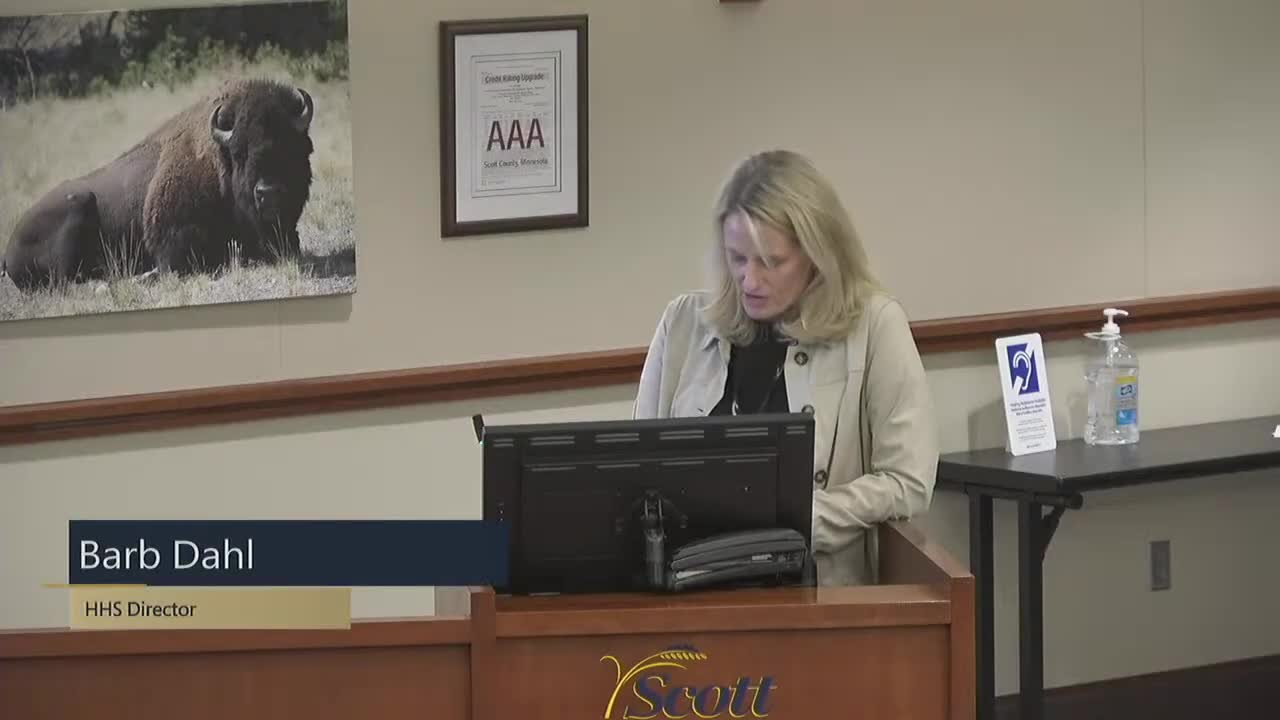Scott County authorizes $100,000 for food shelves, sends letters as SNAP/WIC payments are delayed
Get AI-powered insights, summaries, and transcripts
Subscribe
Summary
The Scott County Board of Commissioners on Nov. 4 authorized up to $100,000 in emergency funds for local food shelves and approved letters to state and federal delegations urging action to restore or continue SNAP and WIC benefits amid a federal shutdown.
The Scott County Board of Commissioners on Nov. 4 authorized up to $100,000 in emergency county funds for local food shelves and approved letters to the county’s state and federal legislative delegations urging immediate action to ensure continuation of Supplemental Nutrition Assistance Program (SNAP) and Women, Infants, and Children (WIC) benefits amid a federal government shutdown.
County staff told the board that about 5,700 Scott County residents receive SNAP and roughly 2,000 people participate in WIC, including about 405 infants. ‘‘We have approximately 5,700 people in Scott County that receive SNAP,’’ a county staff member said during the briefing. The county estimated its combined monthly SNAP and WIC payments at roughly $1,000,000; staff said statewide SNAP payments are on the order of tens of millions per month.
The board’s action included adoption of Resolution 2025‑260, authorizing a budget amendment of up to $100,000 to support food shelves, and Resolution 2025‑266, approving letters to Minnesota’s congressional and legislative delegation urging swift resolution of the shutdown and the restoration of benefits. Both measures passed on voice votes.
County staff described the $100,000 as a backstop to meet documented needs and said the funds would not be distributed automatically. Instead, the county will accept requests from local food shelves; staff recommended small, targeted contracts that specify allowable uses (for example, infant formula and other items that food shelves commonly report as scarce). ‘‘That might be a good time to . . . target what is the big gaps that they usually run out of,’’ one commissioner said during discussion.
Officials said Minnesota had received a federal allocation for WIC — about $3,470,000 for food and $1,900,000 for administration — that they expected to carry WIC benefits at least into mid‑December. Staff cautioned, however, that SNAP distributions were controlled by the U.S. Department of Agriculture and the state, and that a stop in federal funding could delay issuance of November SNAP payments or lead to partial payments while emergency funds are deployed.
Jake Gusing, Scott County’s transformation enterprise services director, briefed the board on community coordination. He described a roundtable attended by 43 external organizations and daily or regular check‑ins with the county’s five food shelves. Gusing said LiftUp (a nonprofit) developed a centralized donation website within about 36 hours of the roundtable; county staff reported more than $1,200 in donations through that portal by the next morning and said additional direct donations were continuing.
Board members repeatedly thanked county staff and community partners for rapid coordination and for prioritizing infants and other vulnerable groups. Commissioners described the county funds as a temporary, targeted backstop while waiting for state or federal action and emphasized that the county expects federal reimbursement for administrative costs incurred while processing SNAP applications during the shutdown.
The board also directed staff to continue accepting SNAP applications and eligibility determinations so benefits could be issued as soon as federal funding resumed. County staff noted the ongoing operational strain on local administration of federally funded programs if the shutdown continued.
Provenance: briefing and discussion began at 00:39:32 (staff background on SNAP/WIC) and continued through the adoption of Res. 2025‑260 and Res. 2025‑266 (vote recorded at 01:04:45 and 01:09:36).
